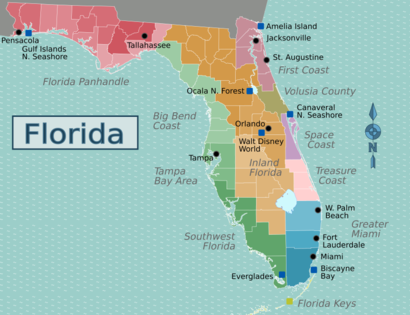In a striking development, a wave of prominent school districts across Florida has decided to withdraw from offering the Advanced Placement (AP) Psychology course, in response to concerns raised by state officials over its treatment of sexual orientation and gender identity. This decision has sent ripples through the educational community, reigniting debates over curriculum content and the delicate balance between academic freedom and legislative mandates.
Of the 11 districts with the largest class enrollments, a notable majority – eight to be exact – have chosen to veer away from AP Psychology, adopting alternative courses as a direct response to the state’s guidance. This decision stems from the Florida Parental Rights in Education Act, colloquially dubbed the “don’t say gay” bill.

Initially confined to limiting discussions around sexual orientation and gender identity in lower grades, the bill recently underwent an expansion to encompass all levels of education. This shift has precipitated a quandary for educators, who now find themselves at a crossroads, navigating the intricate intersection of educational standards and legal compliance.
The debate hinges on the interpretation of the course’s content by the College Board, the governing body behind the AP program. The College Board argues that subjects such as sexual orientation and gender identity are pivotal to the comprehensive study of psychology, a standpoint that stands in contrast to the legislative constraints imposed by the state. In a recent announcement, the College Board went so far as to describe the course as “effectively banned,” prompting a growing number of school districts to reconsider their offerings.
The response has been varied among Florida’s school districts, reflecting the nuanced complexity of the situation.
Hillsborough, Pinellas, and Pasco counties have opted to transition to a college-level psychology course provided by Cambridge International’s Advanced International Certificate of Education program. Seminole County, on the other hand, will shift students to an AP Seminar course that will focus on the study of psychology, while Duval, Orange, and Brevard counties have decided to replace AP Psychology with alternative offerings, such as the Cambridge course or the AP Seminar.
Meanwhile, Palm Beach County has confirmed the removal of the AP Psychology class, though the specific alternative has yet to be specified.
Amidst this flux, St. Johns County Public Schools has emerged as a singular outlier, steadfastly adhering to its commitment to continue offering AP Psychology. A spokesperson for the district cited parental concerns and disappointment as the driving factors behind this decision, while Superintendent Tim Forson expressed confidence in the course’s compliance with the law, pledging to collaborate with teachers to ensure adherence to all standards.
The path forward remains shrouded in uncertainty, with Miami-Dade and Broward counties, two significant school districts, yet to make a definitive determination. The dichotomy between Florida’s education officials and the College Board has created a sense of ambiguity, leaving some districts seeking clarifications regarding the legality and permissibility of teaching AP Psychology in its entirety.
As the academic year beckons, Florida’s educational landscape is marked by a tug-of-war between pedagogical ideals and legislative constraints. The debate around AP Psychology serves as a microcosm of a larger nationwide discourse surrounding curriculum content and the pursuit of a well-rounded education. As educators, parents, and policymakers grapple with these complexities, the ultimate impact will inevitably be borne by the students, whose educational experiences are inextricably linked to the evolving educational and societal dynamics.











